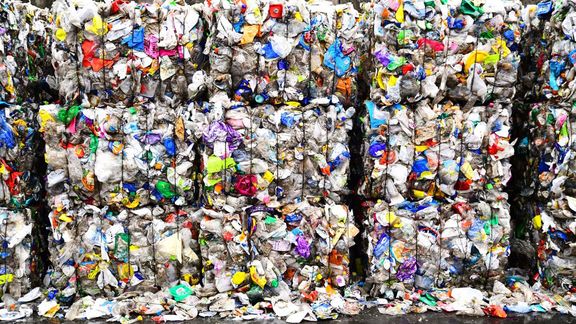Xycle will start construction of its first plastic recycling plant at the end of 2022
Xycle is about to commence construction of a plant in the port of Rotterdam that will convert 20,000 tons of non-mechanically recyclable plastic into high-quality sustainable raw material annually. For this purpose, the Rotterdam Port Authority has leased a site at Rijndwarsweg in Europoort to Xycle.
Construction of this first Xycle plant is scheduled to start in the fourth quarter of 2022. This will provide the chemical industry with a responsible alternative raw material for the production of new plastics.

Xycle is a joint venture of NoWit, Patpert Teknow Systems and Vopak. The company has been working for 14 years on a technique for converting on a large scale non-mechanically recyclable plastic waste into secondary raw materials of virgin quality through chemical recycling. This includes heating mixed plastic without adding oxygen. It does not burn, but disintegrates and can be used again as a raw material. Xycle’s technology has now been tried and proven. Xycle expects to receive the environmental and building permits in the third quarter. This means construction of the plant can start at the end of this year, and is expected to be operational in the fourth quarter of 2023.
Arjen Varekamp, on behalf of NoWIT & Patpert, “As initiators of Xycle, after years of preparation, it is a privilege to be able to translate our sustainable dream into the realization of a Rotterdam circular project together with our strong strategic partner, Vopak.”
Marcel van de Kar, Global Director New Energies Vopak, “We’re very pleased with this milestone for Xycle and proud that Vopak is contributing to this. Developing new infrastructure solutions and setting up new supply chains in partnership is essential in the energy transition.”
Allard Castelein, CEO Rotterdam Port Authority: “Xycle setting up business in the port of Rotterdam fits in seamlessly with our strategy to help existing companies become more sustainable and to attract these kinds of new, circular companies.”
Global roll-out
Xycle’s ambitions stretch beyond Rotterdam. In addition to this plant, which converts 20,000 tons of plastic into approximately 20 million liters of liquid hydrocarbons (pyrolysis oil), Xycle wants to operate plants with a capacity of 80 to 100,000 tons per year. In addition, Xycle’s proven depolymerization technology must be rolled out worldwide. In the coming years, Xycle wants to realize several of these larger plants in various locations in the world.
Circular solution
Currently, less than a quarter of all plastic waste worldwide can be recycled. The rest ends up in landfills, is incinerated or dumped into the environment. Xycle has developed a technology to process plastic, which is difficult to mechanically recycle, in a sustainable way. For example, the (petro)chemical industry needs fewer fossil raw materials for the production of new plastics. The Xycle plant is self-supporting and runs on the fuel produced by the machine itself. Recycling plastic in this way not only requires fewer new raw materials, but CO2 emissions are also significantly lower than when mixed plastic waste is incinerated, as is now often the case.